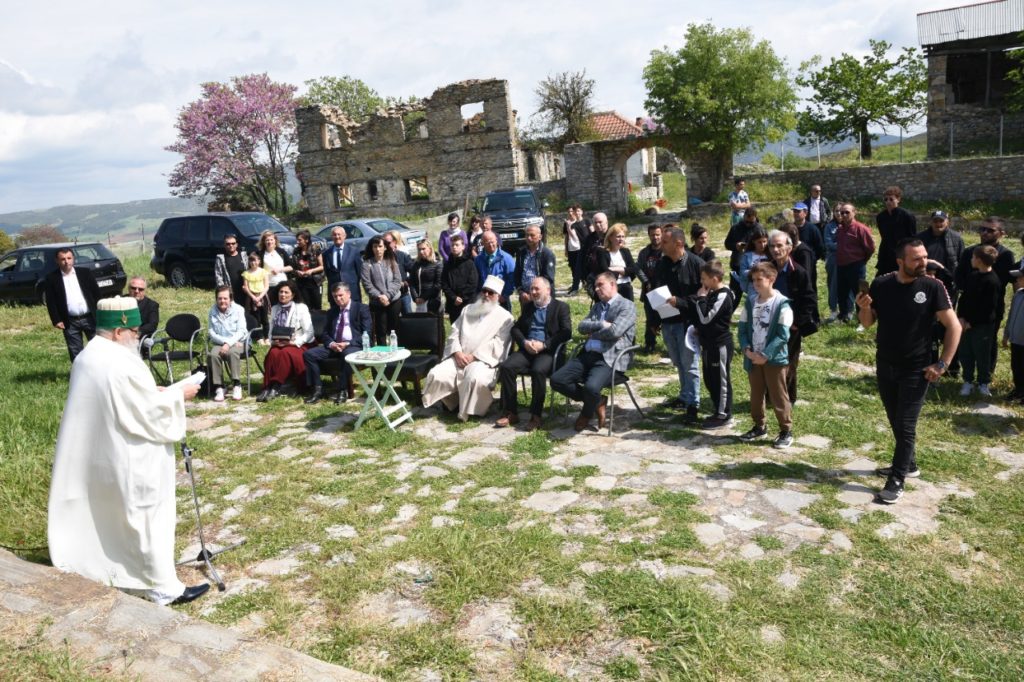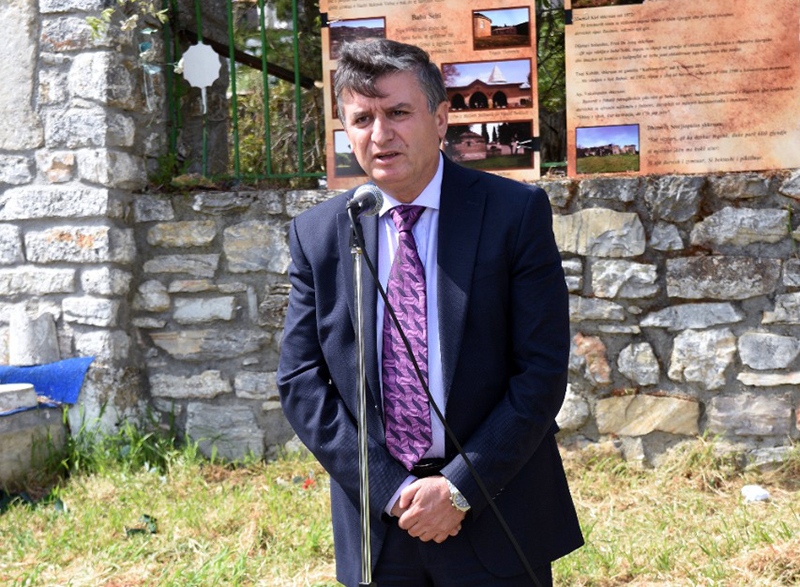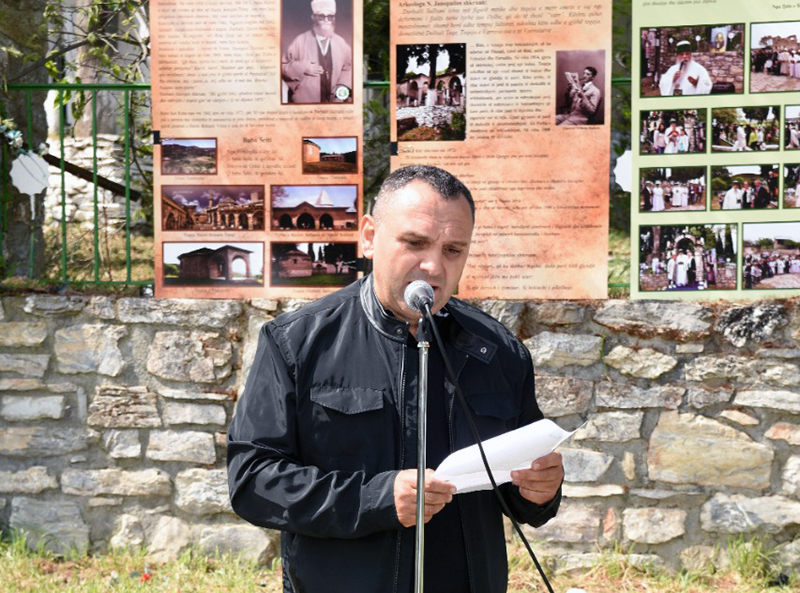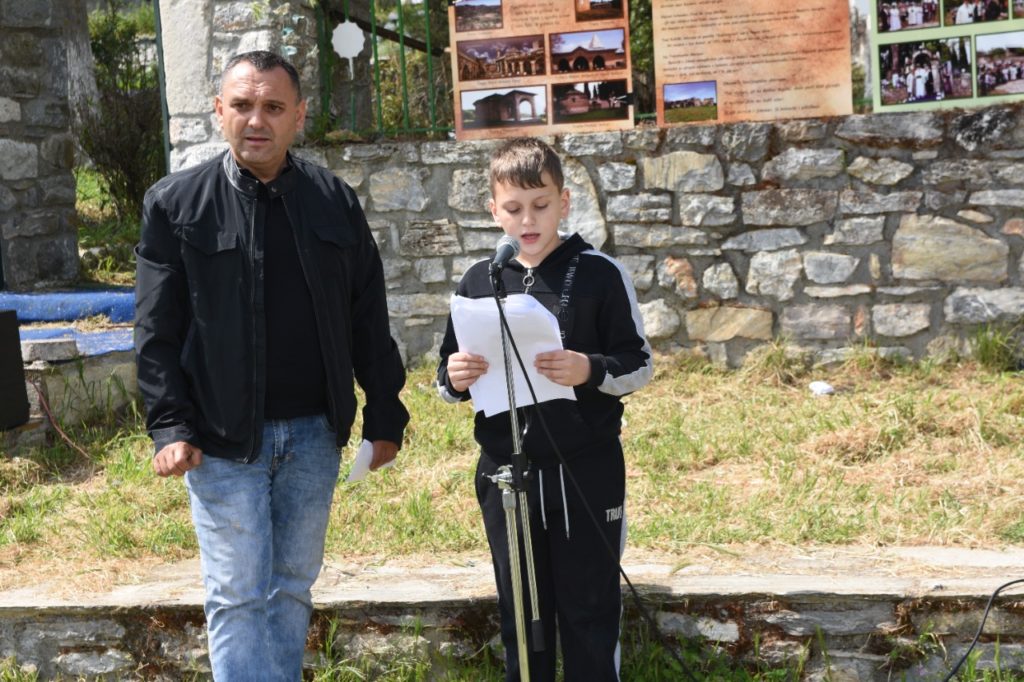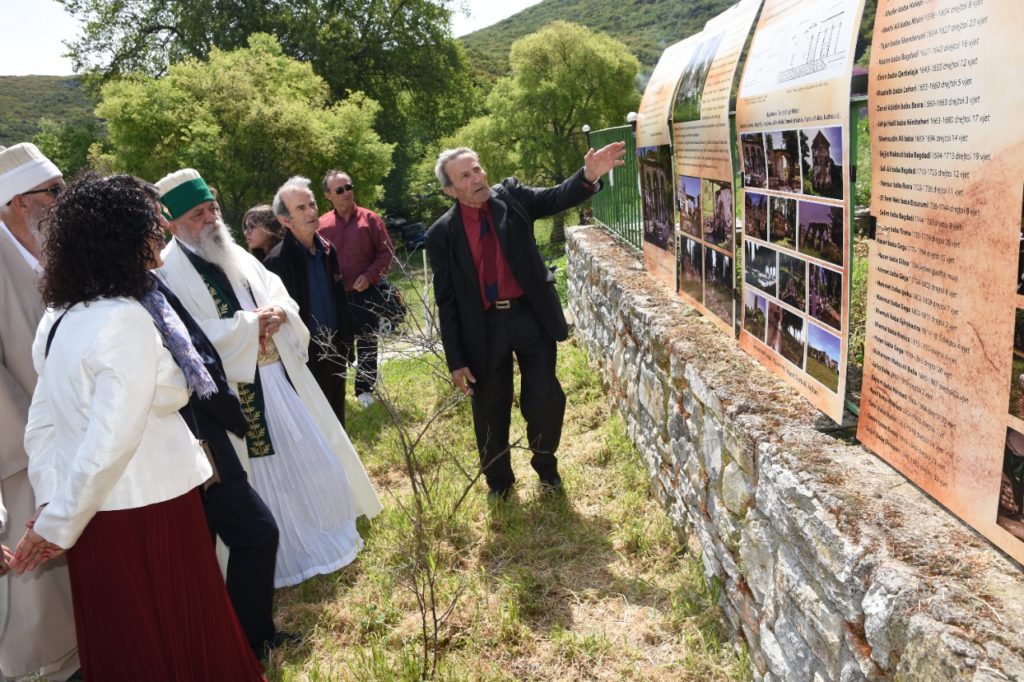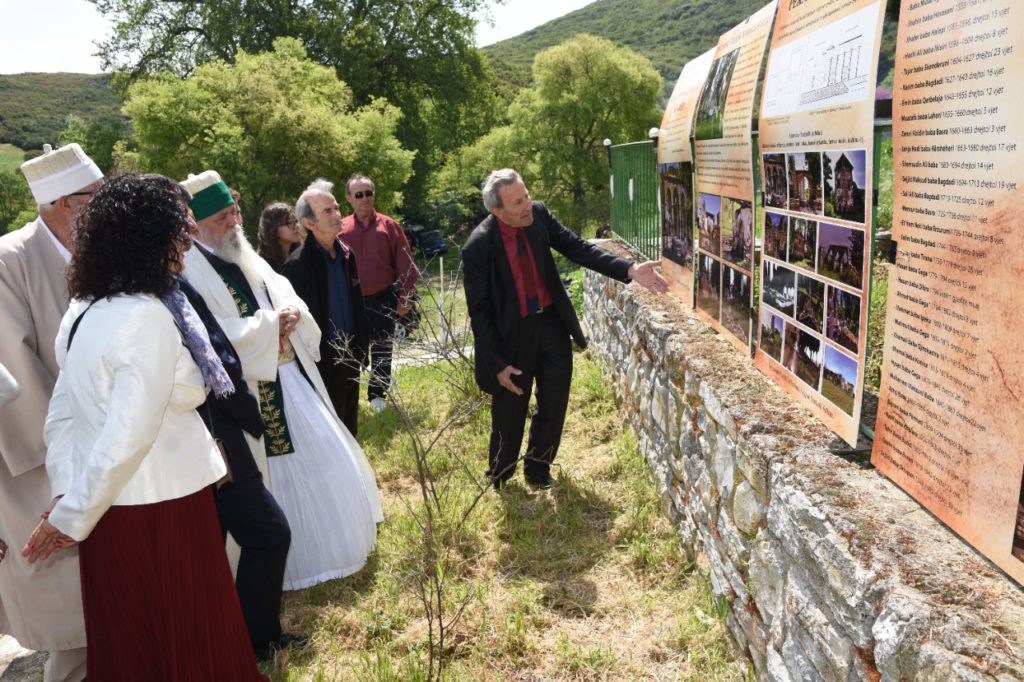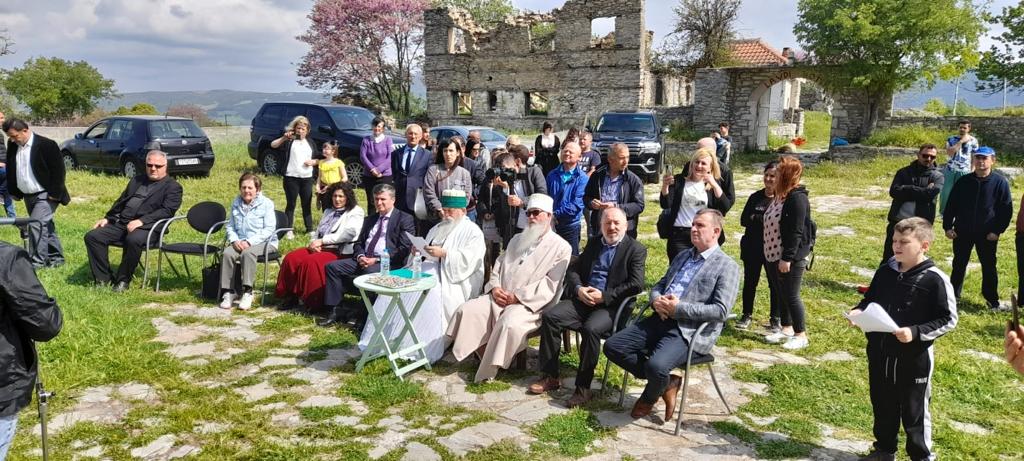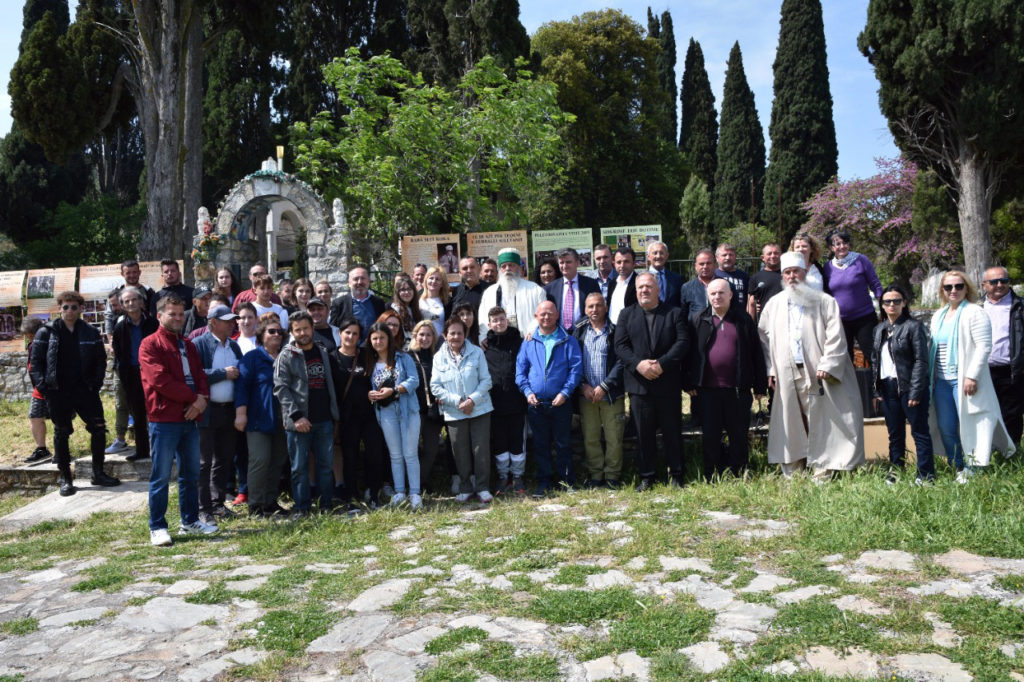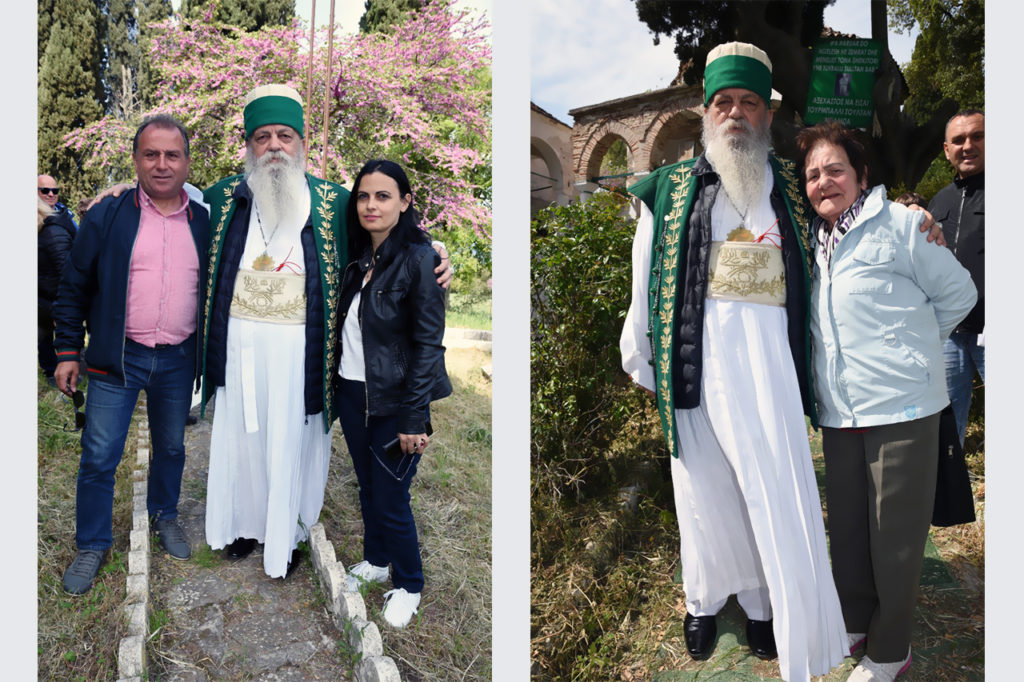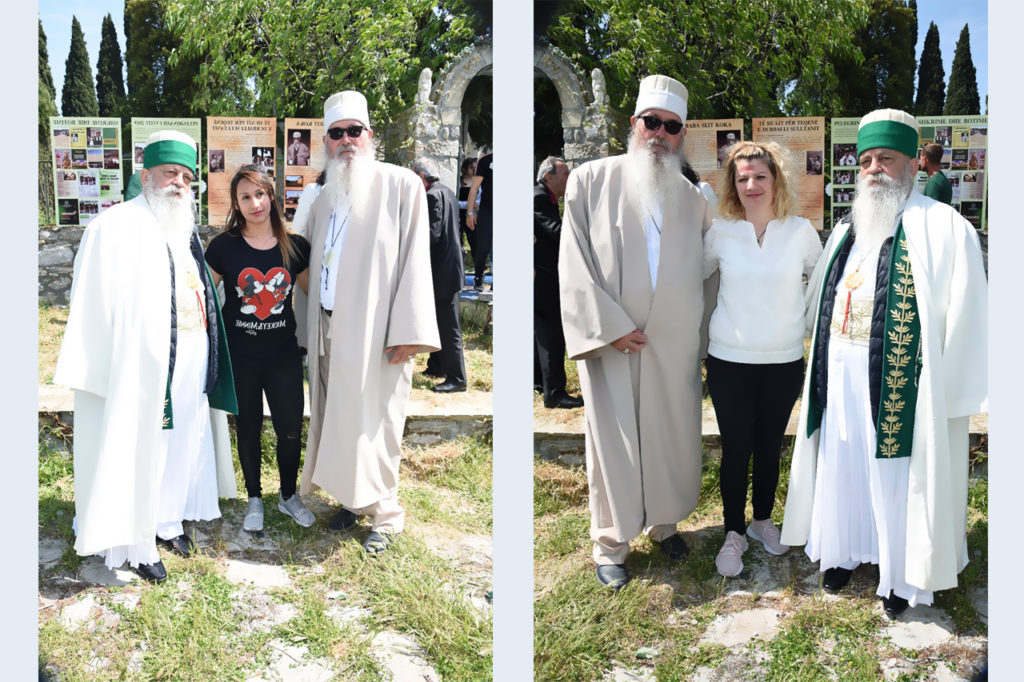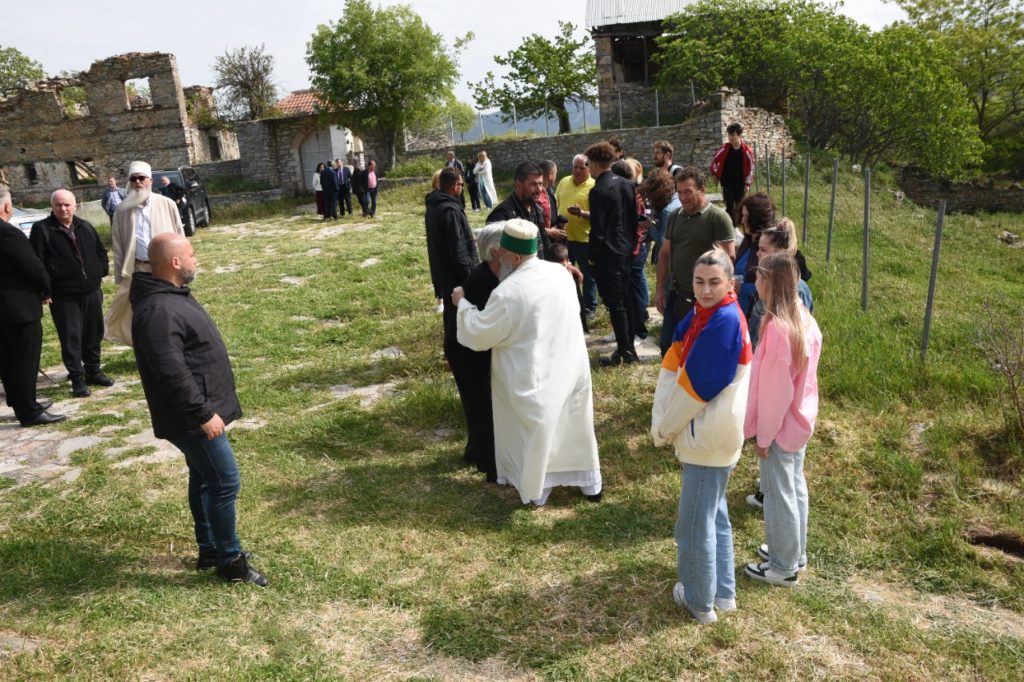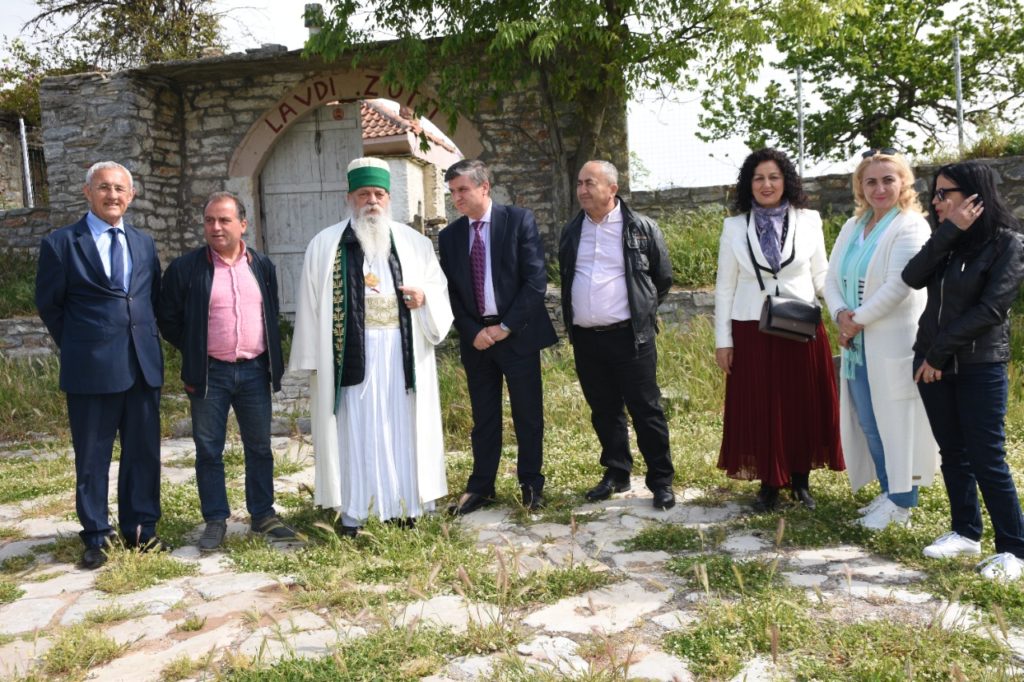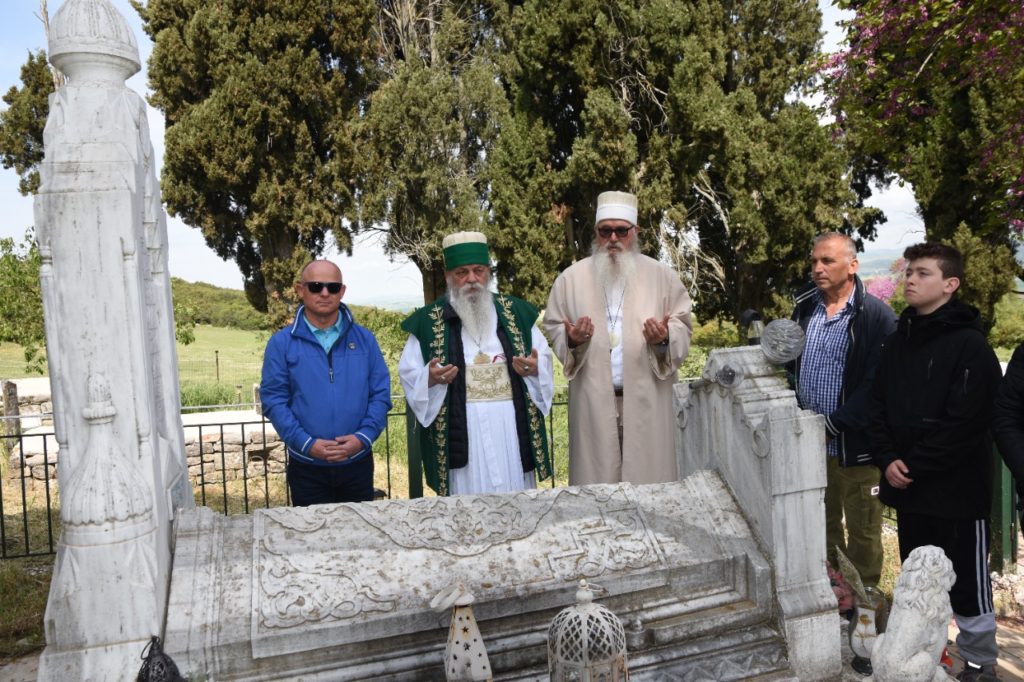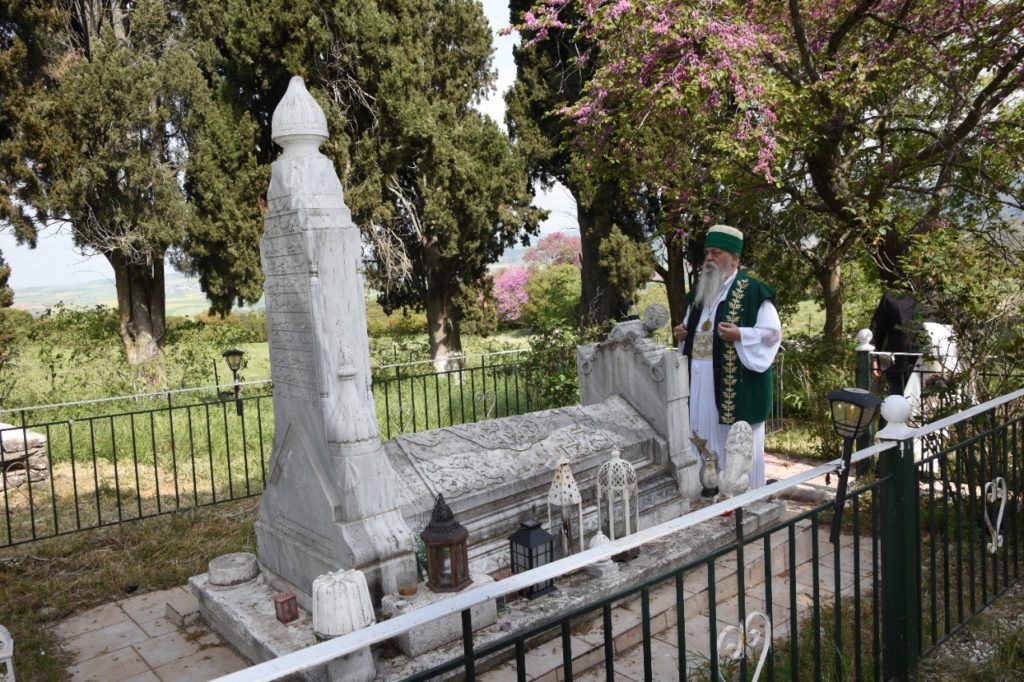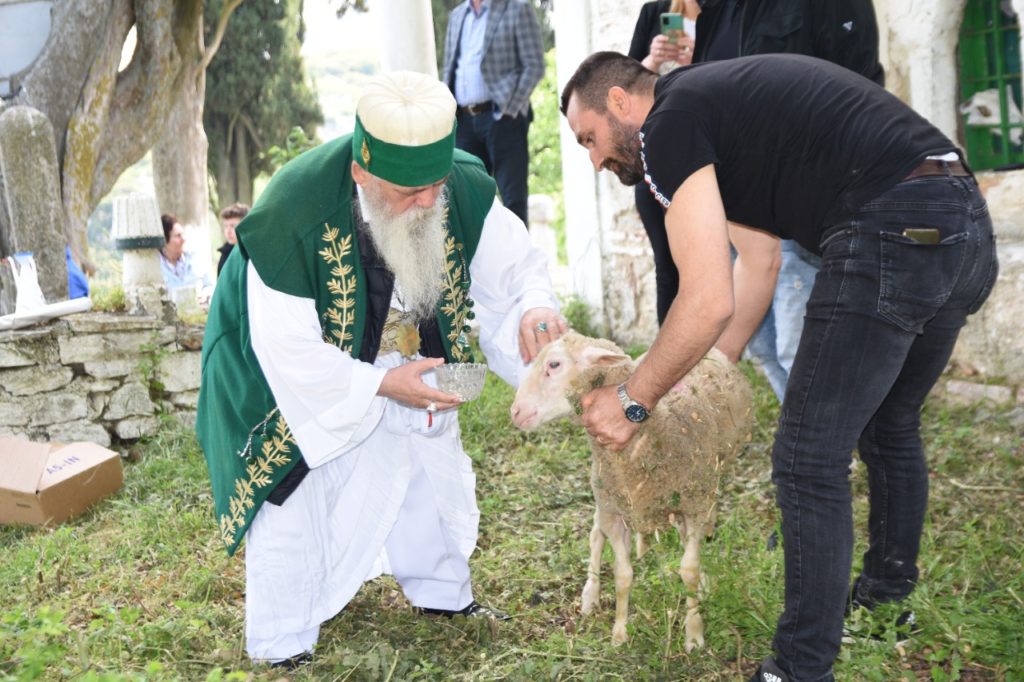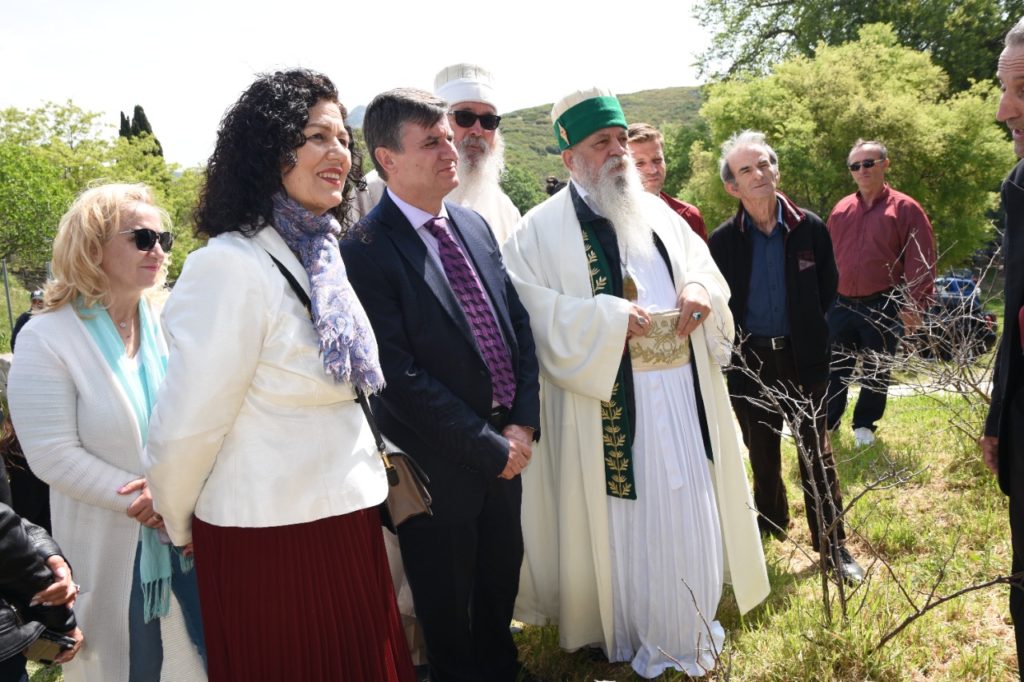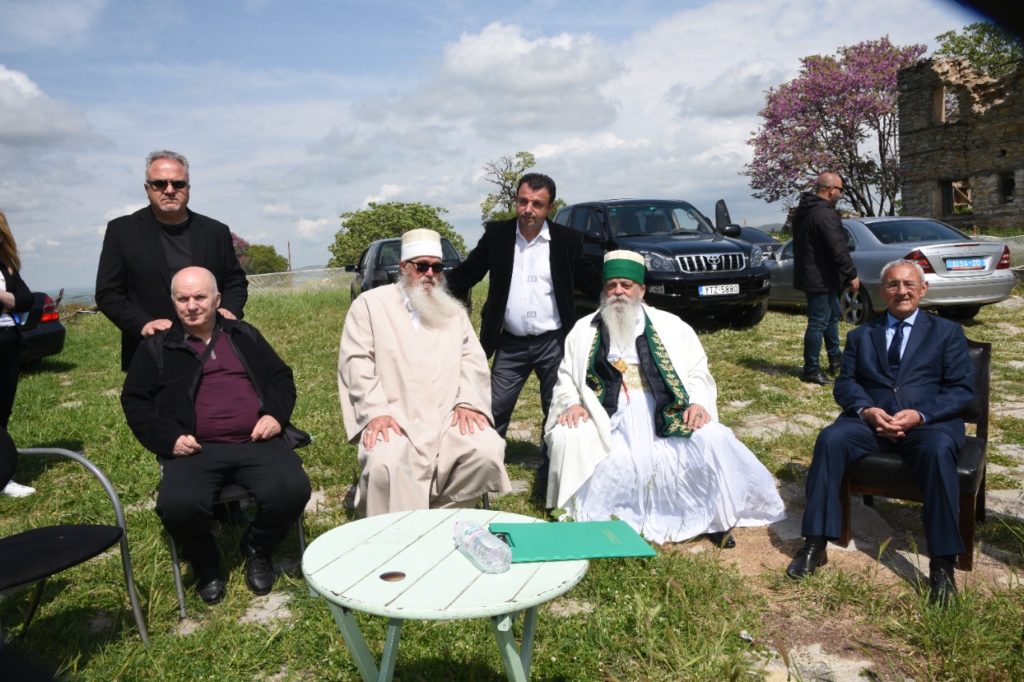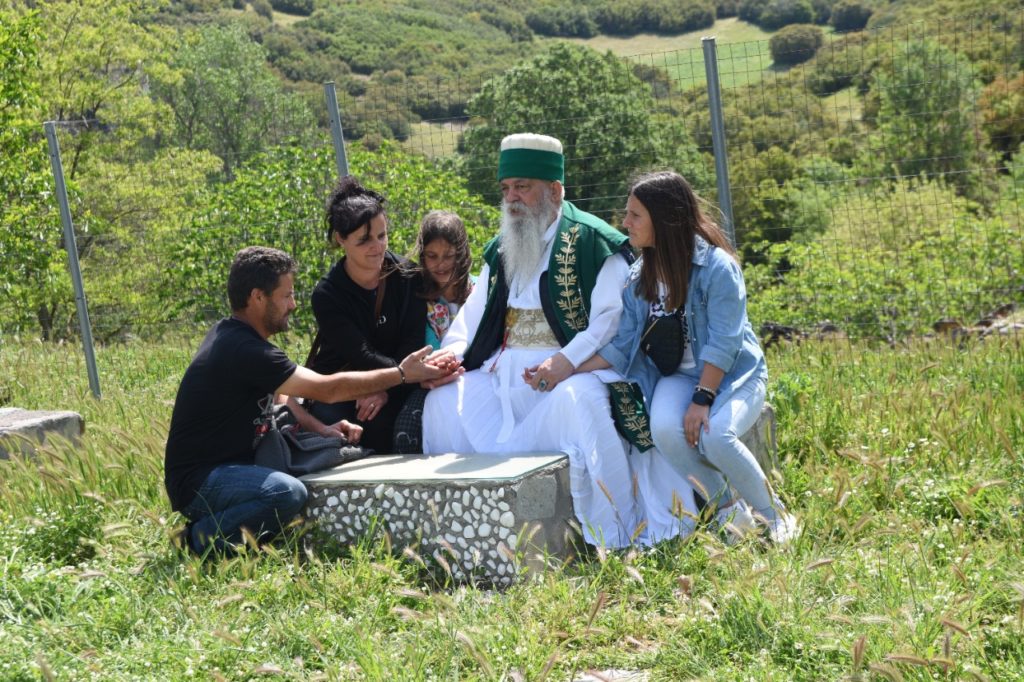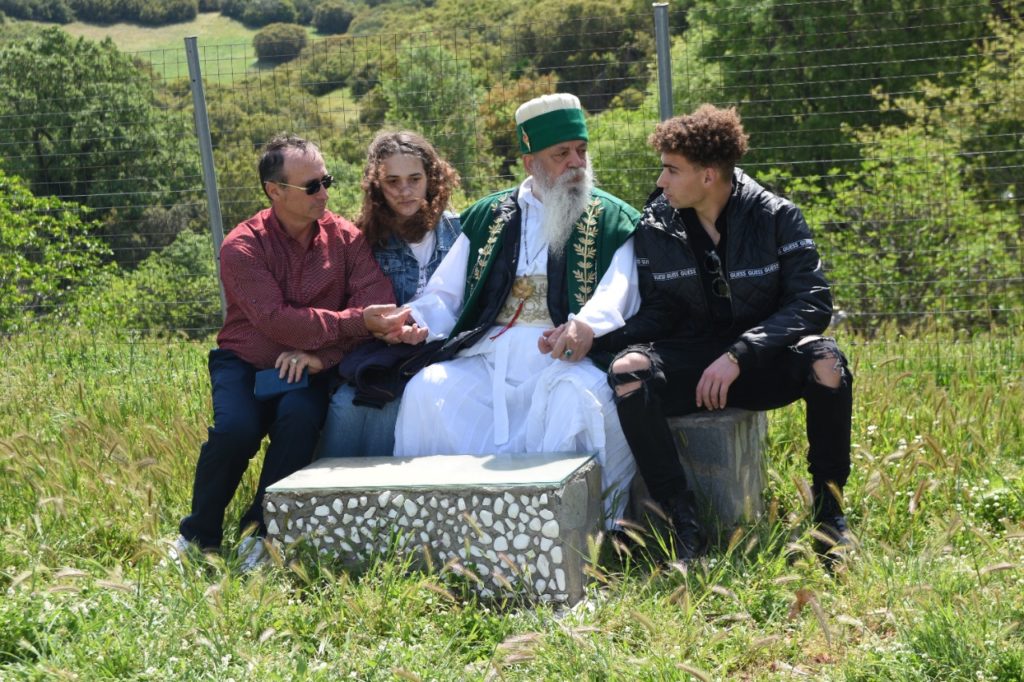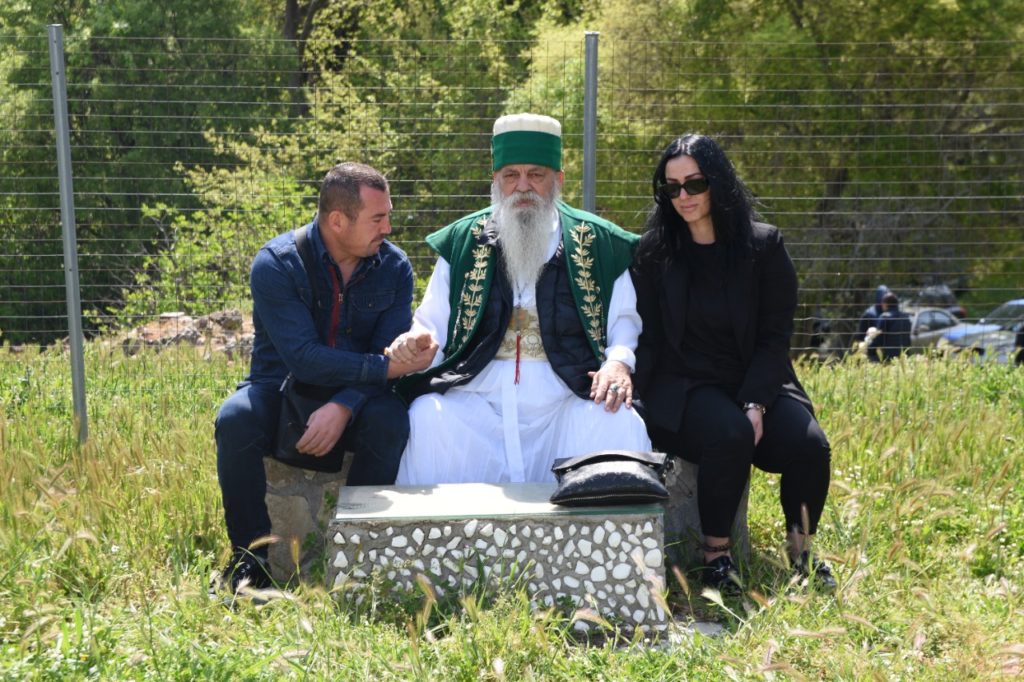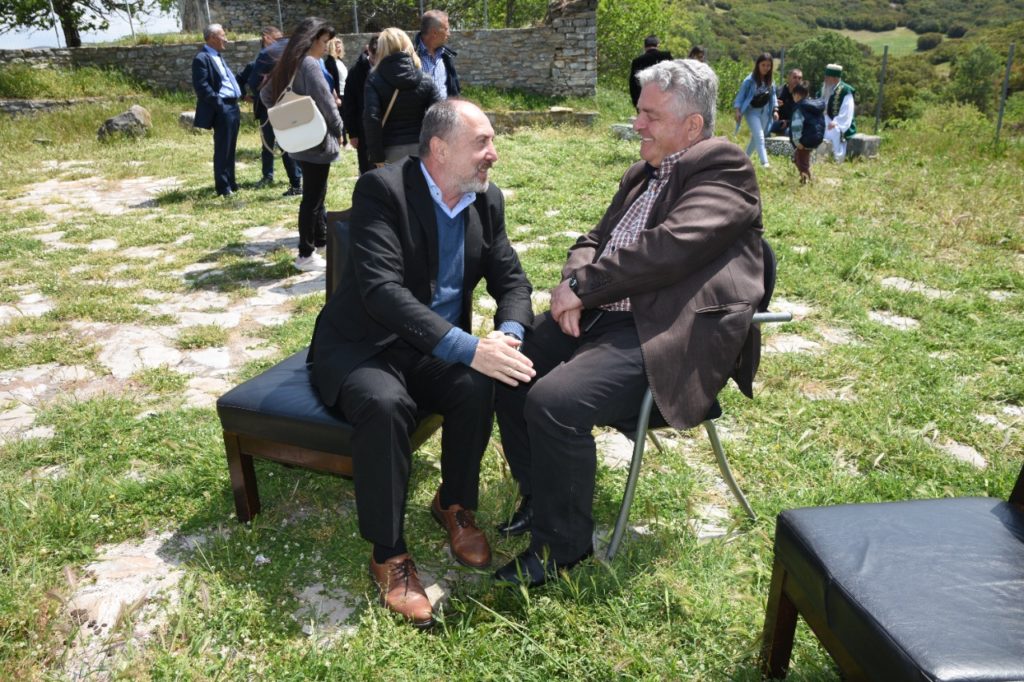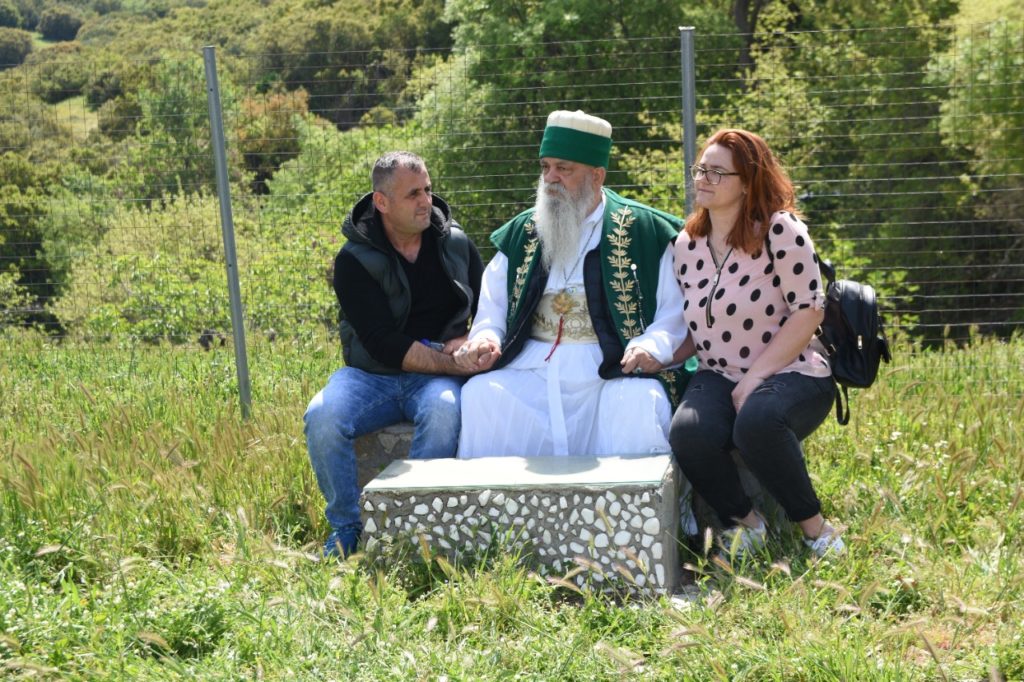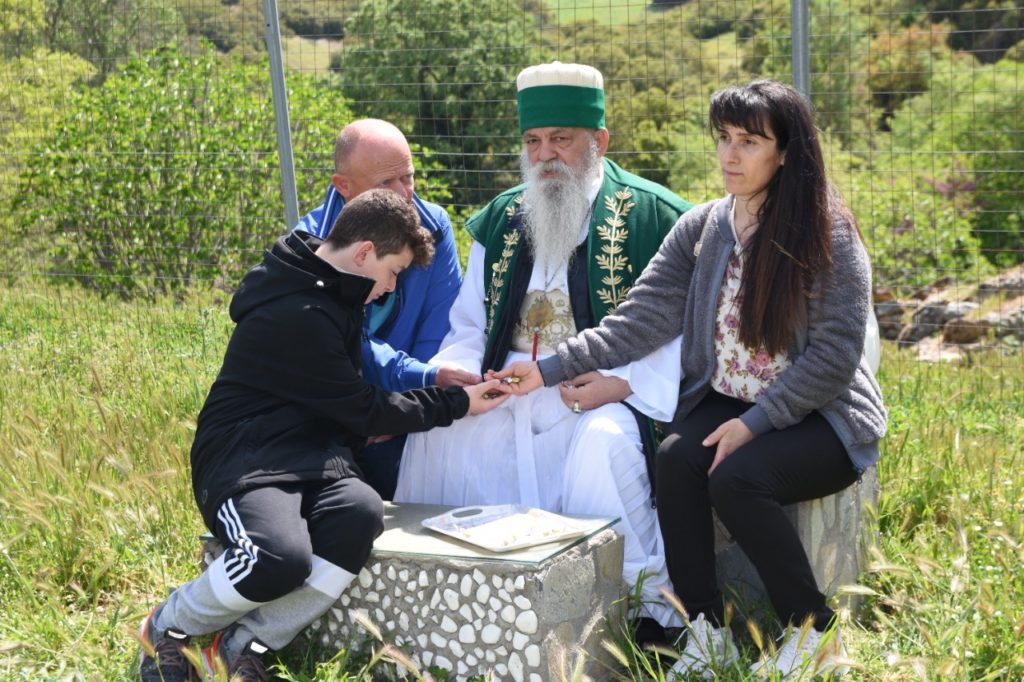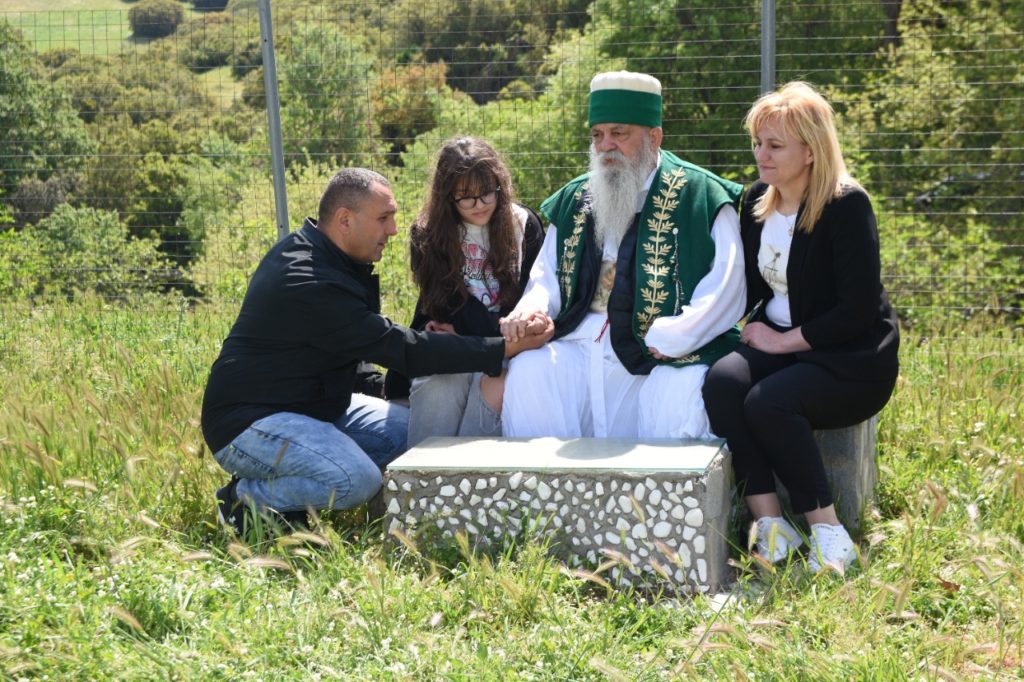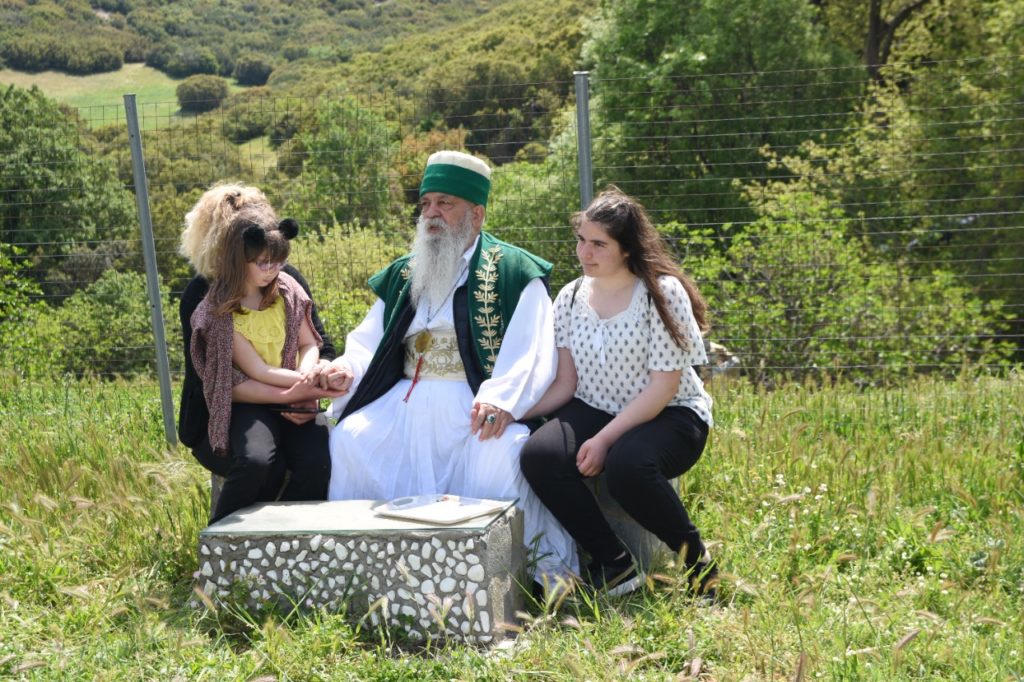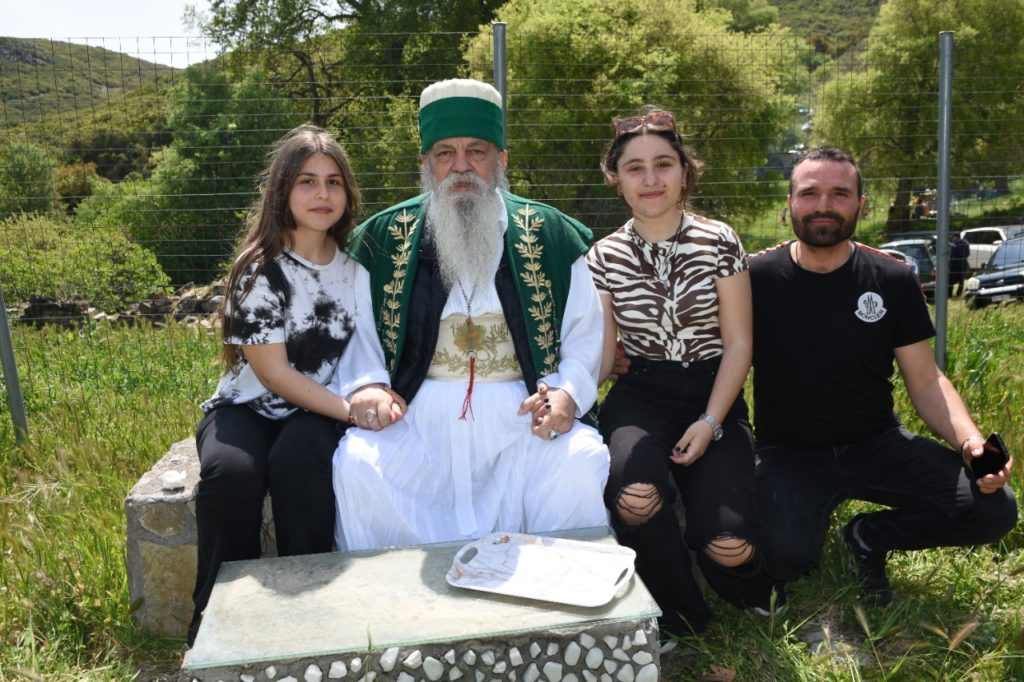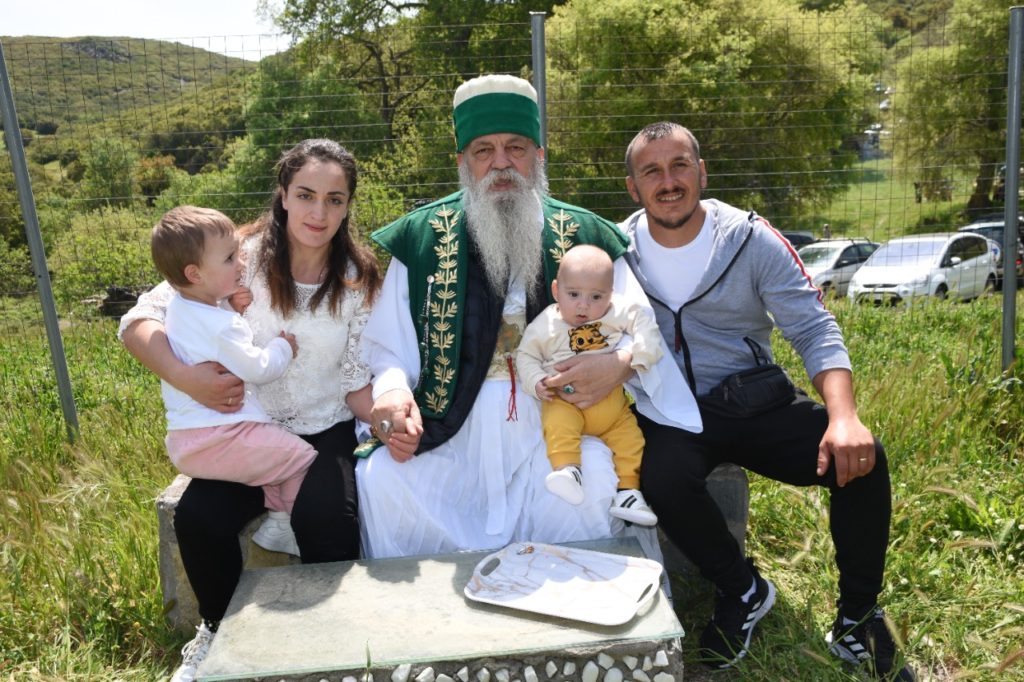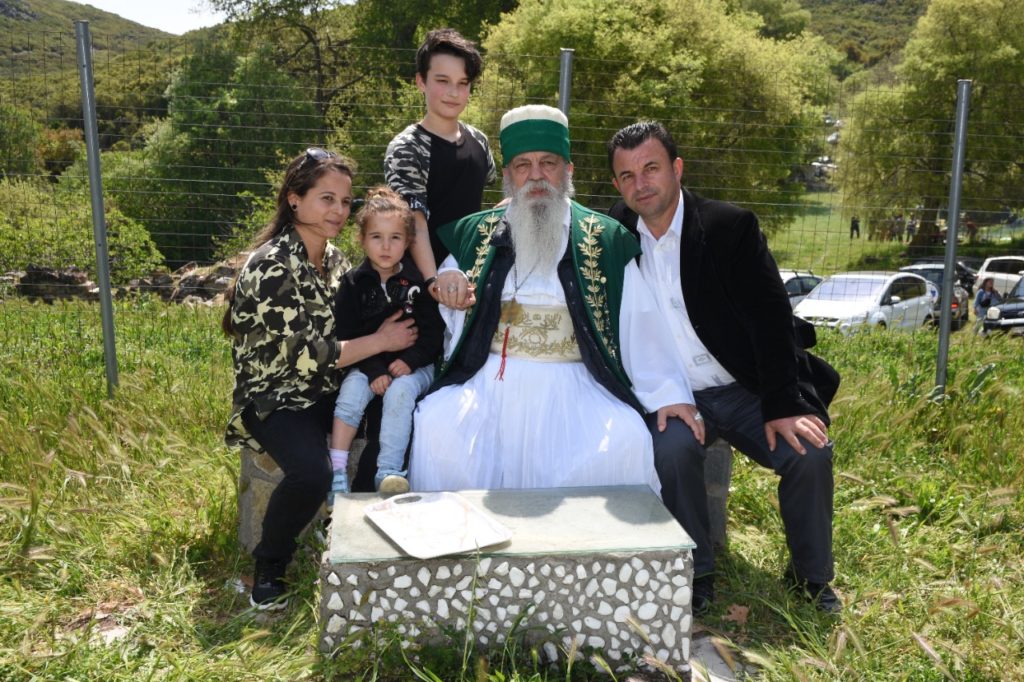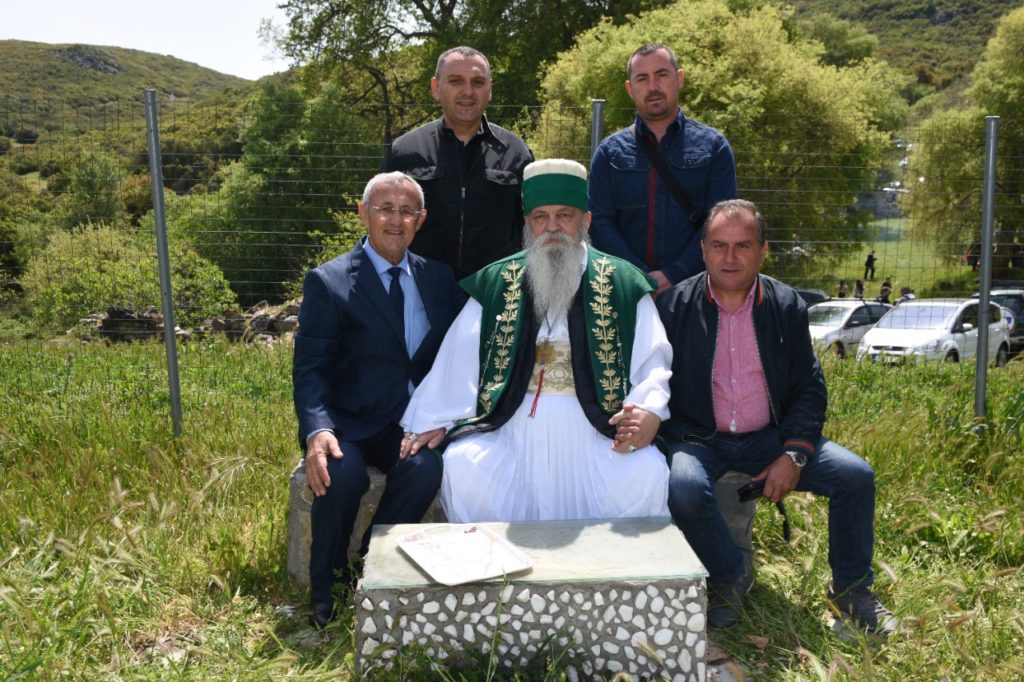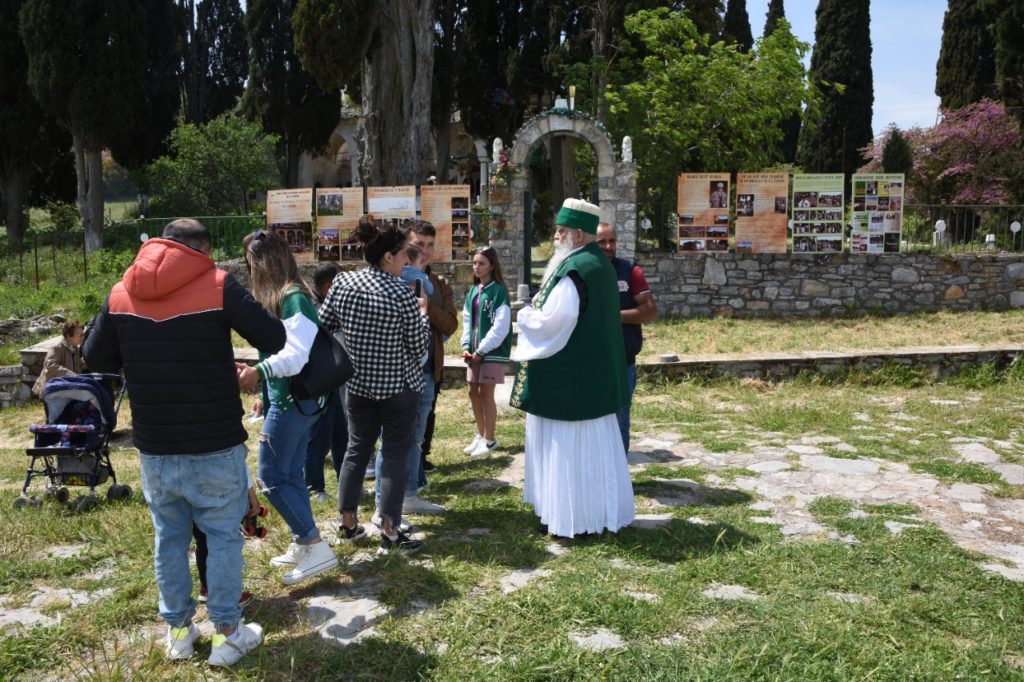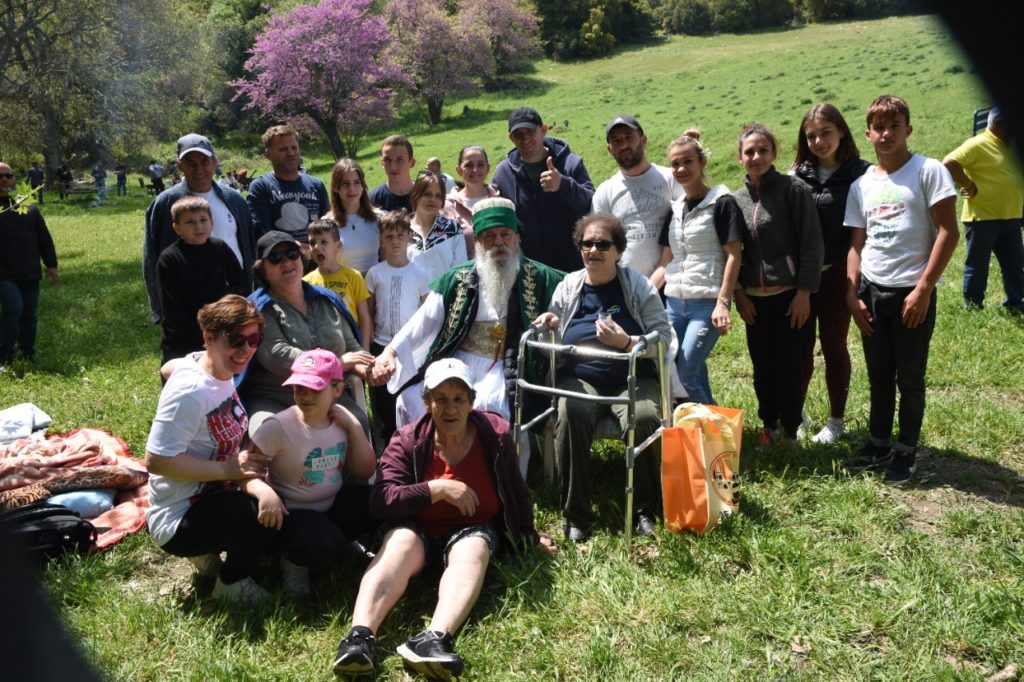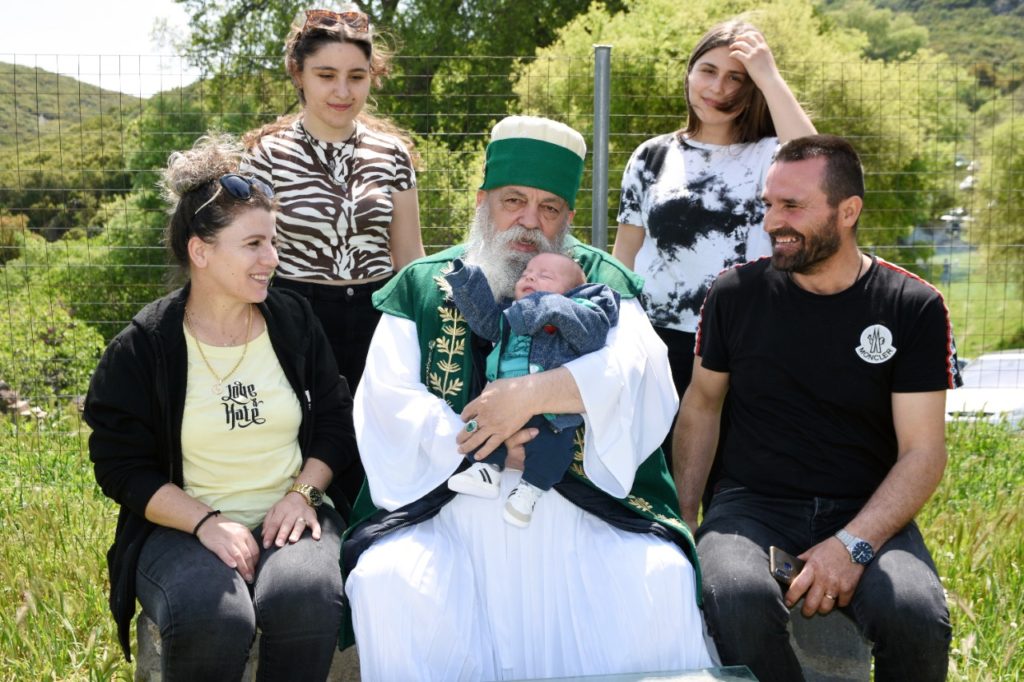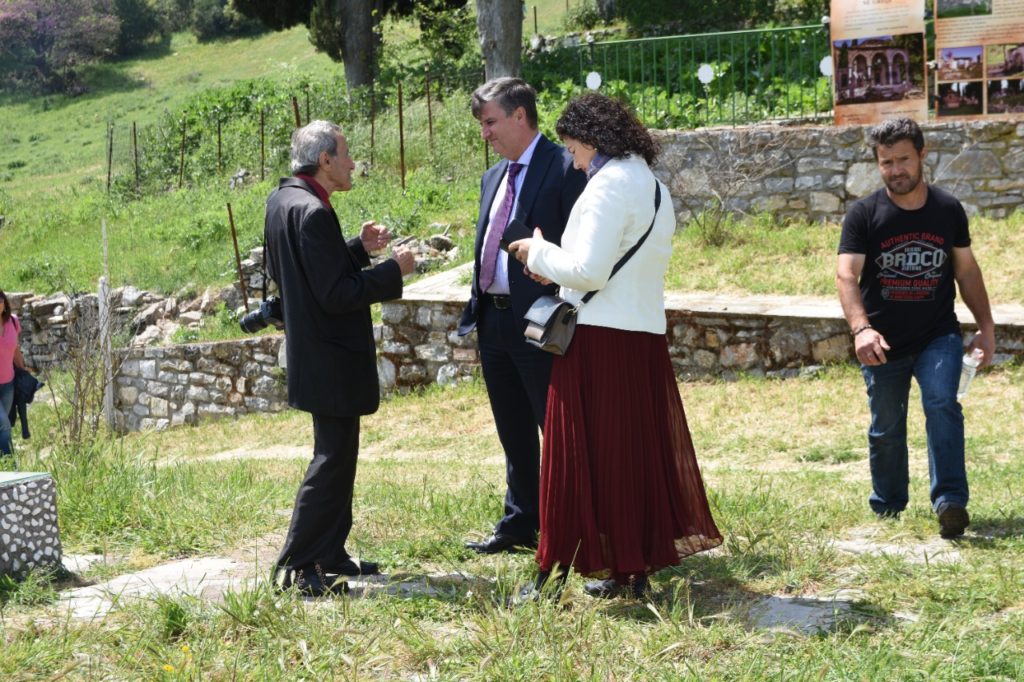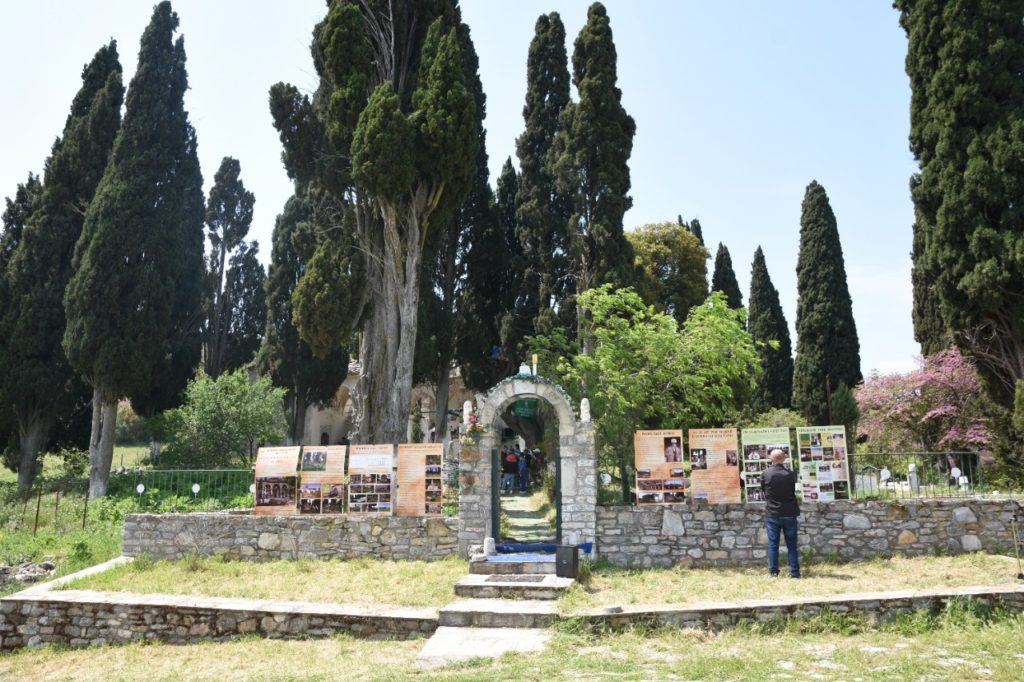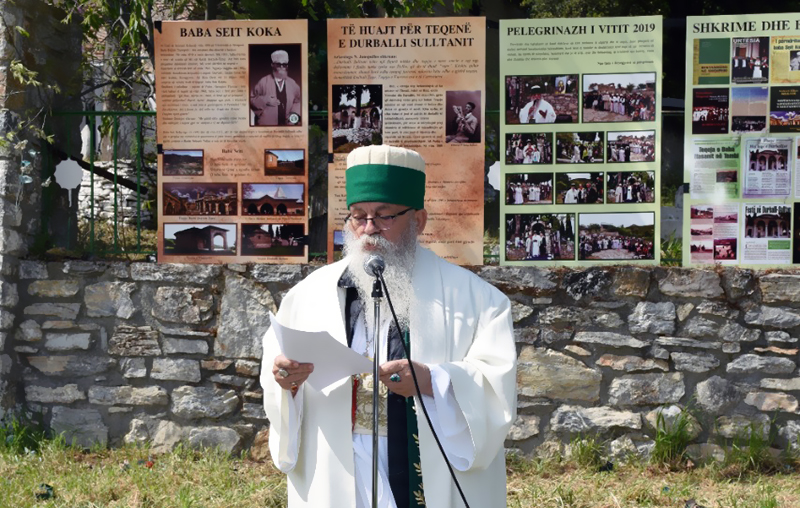
After a two-year interruption, due to the Covid-19 pandemic, last Sunday (May 1, 2022), in Volos, Greece, the annual traditional pilgrimage was organized, in the well-known tekke of "Durballi-Sultani", an activity that coincides with this year and with the 532nd anniversary of the foundation of the town. The religious and festive ceremony, from the preparatory measures until its realization, was held under the care of the Bektashian Grandfather, His Holiness, Haxhi Dede Edmond Brahimaj, in cooperation with the community of Bektashian believers, mainly Albanians in emigration to Greece. In this ceremony, in addition to believers living in Greece, Bektashi clergy and other believers from Albania, Kosovo, North Macedonia, other areas throughout Albania and communities living in Europe and beyond also participated. From the Embassy of Albania in Athens, attended and greeted, Diplomatic Attache Mr. Roland Berzani. The special feature of this year's pilgrimage was that many believers, mainly from Albania, had traveled the day before and settled in the beautiful surroundings of Teke, to wait for the day of the pilgrimage, as 'local residents'.
The ceremony, which started at 11:00, was opened by Saimir Osmënaj, representative of the community of Albanian Bektashi believers, in emigration to Greece. He thanked the World Grandfather for his participation and the continuous support he has given as well as all the participants in the activity. Next, he gave the floor to Dede Edmond Brahimaj, for the greeting of the occasion and the rites of the Bektashi pilgrimage day.
In the greeting on this occasion, the Grandfather of the Bektashi World Headquarter, His Holiness, Haxhi Dede Edmond Brahimaj, among others, said: "...My dear clerical brothers, faithful friends and well-wishers, who have gathered with us today to commemorate the 532nd anniversary of the foundation of Teqe "Durballi Sultan", this day marked for the World Bektashi Patriarchate but also for all Bektashis in Greece and especially in the area, Volos Greece. The history of the antiquity and strong Bektashian roots of this tekke dates back to 532 years ago, founded in 1480 in Farsalla, Greece, shows the early rise of the tekke in the Balkans and its radiation and influence in Albania as well. Tekke got its name from its missionary, who worked with dedication not only for the establishment of the teqeja, but also the dedication and great contribution he gave in the years 1480-1552 during its direction, until he passed away. Durballi Sultan, this missionary, was sent by Seyid Ali Sultan, of Dimoteka tekke in Bulgaria, who planted the seed of Bektashism in the Balkans and founded the first Bektashite tekke in Farsalla (Thessaly) in Greece. He was one of the great saints and is known as such even today, by the entire Greek population located in the villages around Tekke. Even today this population bows with respect to Durballi Sultan. The fathers of this historical tribe were almost Albanians, who always preached the Albanian nationality, like all the fathers of the Albanian tribes that were the centers of Albanianism during the Turkish rule. Today the teqeja is almost in ruins and still shows its architectural fame and the famous history of dervishes and fathers. They surrounded the well-known temple of "Durballi Sultan" in Volos, Greece, with barbed wire and guards for decades, they exerted pressure and violence on the believers, who were denied visits and pilgrimages to this holy place, but they could not to sever the spiritual connections and the path of hope of the believers with the path of Haxhi Bektash Veli, until it was achieved that this denied refuge, becomes a refuge of the believers again. Precisely, it is the support of millions of Bektash believers everywhere in the world, that we get strength for the realization of this objective. The case of the Volos case in Greece is a product of this work. On this occasion, I want to thank mainly the emigrant believers, the ambassadors of Albania, the consuls and the entire Albanian diplomatic body that has been close to us and has supported us in these initiatives, and we raise our voices and call on Teqeja Durballi Sultan to returns to the Bektash World Center located in Tirana, and all Bektash believers not only in Greece but all over the world, to pray in these holy objects freely, so that the World Center also takes this precious treasure out of the ruin and depreciation of time of the history of the Bektashi faith, and then may the souls of these fathers and dervishes who have served in this holy place rest in eternal peace. Bureaucratic policies and rigid regulations must be treated by the objects of the cult of faith with ease and kindness, only in this way this magnificent world will be resurrected and will give an even greater value not only to the Greek state in which it is located, but also to make us Albanians proud.
In the book entitled Tekke in Greece by the author Niko Stylos it is said: '...Its founder, the bektashi dervish, Durbali, who came from Ikonio in Asia Minor and seems to have arrived in Asporja around 1492-1491. The official Turkish authorities of Thessaly grant the dervish Durbali permission to establish a monastery in Irene in recognition of the great military services he rendered on the battlefield, which brought about the conquest of all of Thessaly, the subjugation of the Christian population, and the strengthening of Islamization. hers. In the following centuries, the tekeja in Ireni was strengthened with the manors of the villages of Ireni (Asproja e Farsalla) and Arduan, that is, an area of thirty-two thousand (32,000) dunyms, a fact that made it economically strong. '..In the decade of the 1930s, during an official visit of the king or the prime minister to that area, it was found to be inhabited by 6 Albanian dervishes, under the direction of their father Qazim Baba. Teqeja had 20 people available for various internal and external agricultural works. It is noted that since 1925, many Albanians had taken refuge in Ireni Teqe. Meanwhile, at the beginning of the 1950s, the Greek state, due to the "state of war" with Albania, blocked the wealth of the estate in Farsalla in protective sequestration. Despite Sai Baba's objections and with all his right, in 1960, 13,000 dynams, the net of wealth, were alienated and distributed to the propertyless. With the death of Sai Baba, in 1973, the teqe was forgotten even though in 1980 it was declared a monument and according to K. Çiçeliqi, the income from the remaining property of the endowment should be given for its restoration. As today's travelers and researchers testify, this did not happen either, even though its restoration was unofficially characterized as a 'sensitive matter'. The topic reached the Assembly by Foti Kuveli, to answer the minister at the time, P. Tatulis, that "it belongs to the Albanian government, but it is in the system of alienation" from the Greek state. Despite its great archaeological value, 'the composition of the legal system prevents any kind of restoration work'.
Having said this ancient story, but so current of this Teqeja, the hearth of Bektashism and Holiness, we wish and bless all the Albanians who live in these provinces and who come, receive the blessings of the fathers who have served in these Teqes, we pray to the Great God that one day as close as possible to welcome you Albanian Bektashin fathers and dervishes, in the hearth and warm fireplace of our holy faith, and that the World Center is allowed to restore and administer this hearth with holy Bektashian mysticism. Religious harmony is sacred and must be passed on from generation to generation, this is the only way to nurture love in hearts and devotion to each other. God bless us all! Amin! "
Next, the representative of the Embassy of the Republic of Albania in Athens-Greece, Attaché Dilomatik, Mr. Roland Berzani, who, among other things, affirmed: "...I am happy to be here among you today, on this traditional day of pilgrimage, which this year coincides with the 532nd anniversary of the founding of the 'Durballi Sultan' teke, here in Volos-Greece , to bring the greetings of the Ambassador, Mrs. Luela Hajdaraga. First of all, I want to thank the Bektashian World Grandfather, His Holiness, Haxhi Dede Edmond Brahimaj for the invitation and assure him, just like until now, we will be in constant support and effort, in cooperation and with the relevant structures of to the Greek state, that in the spirit of freedom, human rights, freedom of religious belief, even this institution, which is almost in ruins, may be resurrected and put at the service of local believers and anyone who seeks rest and hope in this Bektashian world, with ancient history. Having as an example the personal efforts of the Bektashi believers of different races and nationalities, mainly Albanian immigrants who have been integrated for years and decades in Greece, who more and more come to pray and ask for hope for daily life the best in this temple of God, can find the right solution and some problems that still exist, due to reasons that have been suppressed for decades. I wish all the participants, clergy and believers who came from Albania, Kosovo, North Macedonia, here from different parts of Greece and beyond, for more health and hope, for more love and harmony! Thank you!".
A special and very interesting presentation and greeting in Greek was received by an Albanian student born in Greece, 10-year-old Mr. Osmani.
At the end of the ceremony, the Great Bektashian World Grandfather, His Holiness Haxhi Dede Edmond Brahimaj, invited those present to visit the exhibition "532nd anniversary of the establishment of the Durballi-Sultan teke of Volos, Greece", which was liked by the participants.
In the end, the Bektash event continued with the lunch that was prepared for this occasion.
Prepared by:
Nuri CUNI
Kujtim BORIÇI
